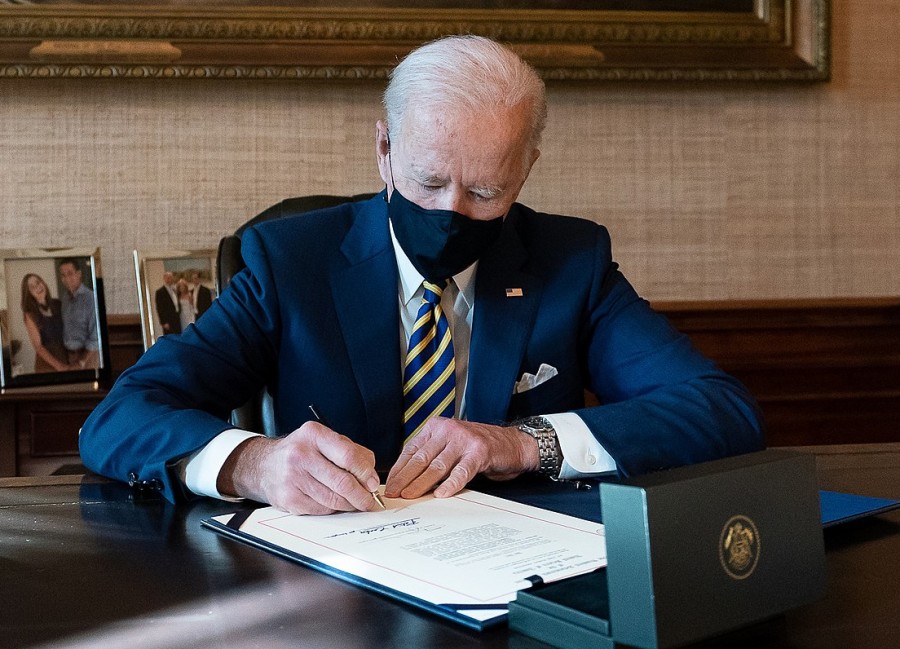President Biden’s $1.4 trillion stimulus package was passed by Congress on March 6, pushing the bill another step closer to becoming law. This bill includes the checks to be sent out to citizens and aid for local and state governments, among many other things.
Under this bill, $1,400 are sent out to individuals with an income less than $75,000. Couples with an income of under $150,000 receive that same amount per person and each dependent adds another $1,400 to the check. The amount citizens receive decreases with the increase in their income and eventually cuts off at $80,000 and $160,000 respectively.
Janene Murphy, a PV business teacher, shared her thoughts about the stimulus package. “Everyone who gets a stimulus check will get money in their pockets, which is beneficial to most. However, this is a short-term benefit—a benefit many, but not all, need right now, she said. ‘It is important to consider the additional burden these checks will be on the national debt. That’s why I think there’s been so much back and forth on Capitol Hill.”
The original bill had higher cut-off marks, but those values were lowered after it passed through the House of Representatives. But, this is still higher than the $900 billion package put into law near the end of Trump’s presidency. The greater cooperation between Congress and Biden has proved to be beneficial for the approval of the new stimulus package.
Senior Cassie Smith agrees with this idea. “Greater cooperation between Congress and the White House, I believe, helped the passage of this larger stimulus package,” she stated.
Besides the stimulus checks being delivered to U.S. citizens, the bill also includes the continuation of $300 unemployment checks. Biden proposed to raise this amount to $400, but it was declined by the Senate.
Another proposal under this stimulus bill was the $15 minimum wage. It was rejected by the Senate, which received much backlash. This section of the bill violated rules the Senate set for Democrats so it could be passed without any filibusters. To be added back onto the bill, the $15 minimum wage had to be voted on; this vote denied the request to add the minimum wage increase to the bill.
Smith shared her opinions about the minimum wage. “Although an increase in minimum wage would be beneficial to many, it is not directly related to COVID-19 relief, but I think it would be better suited for the legislature to consider at a different time,” she said.
Murphy agrees with Smith. “[The increased minimum wage] will definitely hurt businesses who have small profit margins. They’ll either have to reduce the number of employees, do their best to cut operational costs, or increase the price of goods and services they sell in order to stay in business,” she shared. “I would be interested to see who is actually making $7.25 right now. Statistics show that minimum wage workers tend to be young with no high school degree. However, that isn’t every case.”
In the stimulus package, $350 billion is going to state and local governments and $130 billion is going to schools. The money has multiple restrictions on how it is spent. The funding helps food assistance, colleges and universities, housing aid and businesses.
The Biden Administration’s stimulus package sends plenty of funding to a wide range of Americans in need, but the long-term impacts should be considered with the passage of this bill.










Julia Leach • Mar 25, 2021 at 2:25 pm
This is very informative, it helps a lot of young adults understand if they will be getting a stimulus check!